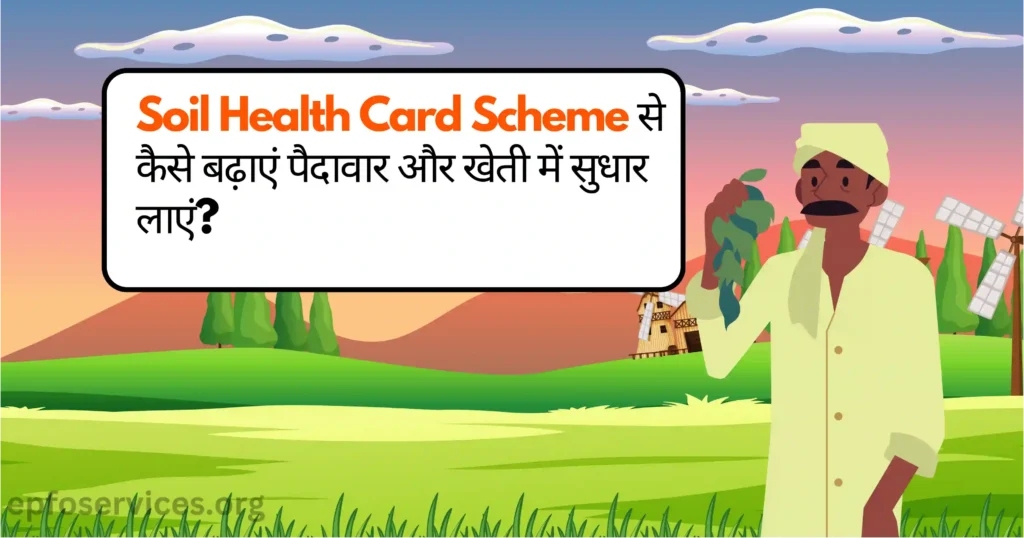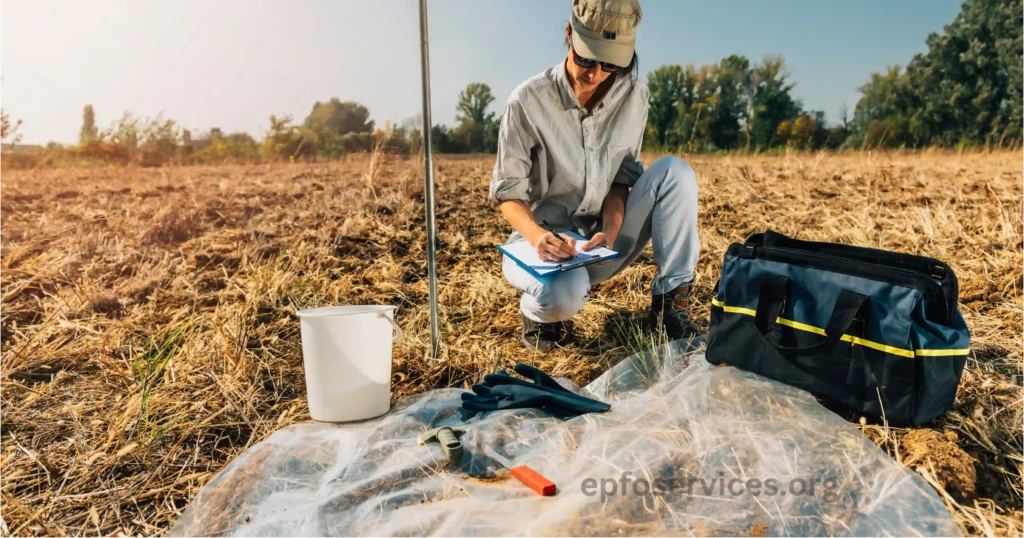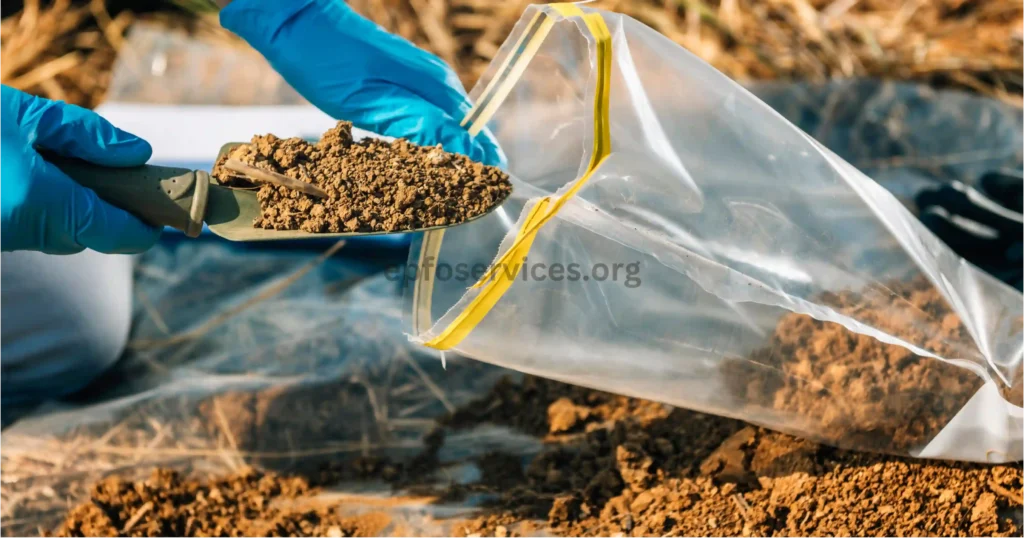Have you ever wondered why your crops might not be yielding as much as they should, despite all your hard work? The government understands the challenges you face as a farmer, especially when it comes to understanding the health of your soil. That’s why the Soil Health Card Scheme was introduced.
What is the Soil Health Card Scheme?

This scheme is designed to help you, the farmer, make better decisions about what your soil needs to produce healthier and more abundant crops. By providing detailed information about your soil’s nutrient levels and fertility, the Soil Health Card empowers you to use the right fertilizers in the right amounts, saving you money and improving your yields. The goal is simple, to boost your productivity while promoting sustainable farming practices for a better future.
Objectives of the Soil Health Card Scheme
The Soil Health Card Scheme serves multiple purposes, all of which are aimed at helping farmers improve soil quality and crop production:
- Regular Soil Testing: One of the primary objectives of the scheme is to promote regular soil testing by farmers to understand the nutrient status of their land.
- Eco-Friendly Practices: Promoting eco-friendly farming practices that reduce dependence on chemical fertilizers.
- Higher Yields: Helping farmers optimize input use for better yield and higher profits by increasing the yield of their crops.
- Cost Savings: Providing information to farmers about the correct quantity and type of fertilizers to be used so as to reduce unnecessary expenditure.
Key Features and Benefits of the Soil Health Card
The Soil Health Card is an important tool for farmers which provides many benefits to them, we have discussed it in detail below.
- Personalized Recommendations: Based on the results of soil testing, farmers are given personalized advice on fertilizer use, crop selection and soil improvement techniques.
- Better Soil Quality: By following the recommendations given on Card, farmers can improve the fertility and quality of their soil, which leads to healthy crops and benefits them.
- Lower Fertilizer Costs: Helps many farmers avoid excessive use of fertilizers. Using only the required amount saves money for farmers in the long time.
- Awareness Building: This scheme educates farmers about the importance of soil science and sustainable agricultural methods.
Eligibility Criteria for the Soil Health Card Scheme
This scheme is available to all farmers who own or lease agricultural land in India. It includes small and large farmers in rural and urban areas. This scheme covers all types of land, from low fertility land to land that becomes waste due to excessive use of fertilizers.
Farmers are encouraged to get their soil tested to obtain this Soil Health Card, Which is issued free of cost in most of the cases and sometimes you can get it done by paying a some affordable charge.
How to Apply for a Soil Health Card
Farmers can apply for a Soil Health Card through both online and offline methods:
Offline Process:
- Visit your local agriculture office, Krishi Vigyan Kendra (KVK), or Soil Testing Lab.
- Fill out the application form with your personal and farm information.
- Submit the form and collect soil sampling guidelines.
- Deliver the soil sample to the office for testing.
- Receive the Soil Health Card in person or by post.
Online Process:
- Visit → official Soil Health Card portal or your state’s agriculture department website.
- Register → Fill your personal and farm details.
- Submit a request for soil testing, including farm details like location and area.
- Follow the instructions to collect soil samples and deliver them to the designated testing center.
- Once tested, download your Soil Health Card from the portal.
The whole process is simple and is done through local agriculture departments or in some areas through online portals. Please get more information about this by visiting the official site or your local agricultural office.
Soil Testing Fees and Parameters

Soil Testing Fees:
Farmers will pay Rs. 300 per soil sample for collection, testing, and generation of a Soil Health Card.
| Sl No. | Item | Cost (₹) |
|---|---|---|
| 1 | Soil Sample Collection | ₹40 |
| 2 | Consumable used for testing | ₹150 |
| 3 | Awareness of farmers | ₹110 |
| Total | ₹300 |
Soil Testing Parameters
In the process of soil testing, various parameters are analyzed to assess the quality and fertility of the soil. We have described some of the major soil parameters below.
Here are the key things a soil test measures:
- Acidity or Alkalinity (pH Levels): This tells you if your soil is too acidic or alkaline, which can affect plant growth.
- Salt Levels: High salt levels can harm plants.
- Organic Matter: This is like food for your soil and helps it retain nutrients and water.
- Key Nutrients: These are the building blocks for plant growth, such as nitrogen, phosphorus, and potassium.
- Soil Texture: This refers to the mix of sand, silt, and clay in your soil, which affects water drainage and nutrient retention.
By understanding these factors, Farmers can make informed decisions about fertilizing, liming, and other soil management practices to improve their crop yields and soil health.
Soil Health Statistics
As discussed earlier, the soil health test includes several important parameters like pH, nitrogen content, and organic carbon. Below is a chart summarizing the common soil health data collected in India, based on soil testing from various regions:
| Total Allotment | 8891056 |
| Samples Collected | 5898781 |
| Test Completed & SHC Generated | 3961852 |
Expert Insights: What Agricultural Leaders Are Saying About Soil Health
Krishi Experts on Twitter: Insights About the Soil Health Card

- Research on SHC implementation reveals a 15-20% cost reduction in fertilizer use while increasing yields by 10-15%.”
Impact on Farmers and Agriculture
The Soil Health Card Scheme has had a significant positive impact on Indian agriculture. After providing necessary information to the farmers through this scheme, they have got benefits in many ways.
- Agricultural productivity is increased through this scheme by helping farmers optimize the use of nutrients.
- This scheme has a significant contribution in reducing dependence on chemical fertilizers and promoting sustainable agricultural impact.
- The scheme has increased crop production leading to better yield and improved food security.
Many farmers have reported significant improvement in soil quality and crop production after following the recommendation provided by the soil health card.
Latest Updates on the Soil Health Card Scheme
The Soil Health Card Scheme has evolved over the years to support sustainable farming. You can check here it’s key updates year by year:
- 2015: Scheme launched to promote soil testing for better farming practices.
- 2020: Digital tools were integrated for easy access to soil health data.
- 2023 (June 22): The introduction of a new mobile app and GIS-based mapping to streamline soil testing.
- 2024: Further enhancements with Village Level Soil Testing Labs (VLSTLs) to empower youth and self-help groups.
These updates aim to boost soil fertility and improve farming efficiency. For full details, visit the official release.
Government Efforts to Improve the Scheme
To ensure the success of Soil Health Card Scheme, our Indian Government has taken many steps:
- Awareness Campaigns: Our government in collaboration with local agricultural bodies and NGOs is working in many ways to spread awareness about the benefits of soil testing and soil health card.
- Collaboration with Private Labs: In some areas, the government has collaborated with the following soil testing laboratories to expand the reach and speed up the process so that farmers can get the report under the Health Card Scheme as soon as possible.
- Training Programs: After the farmers get the result through their soil health card, they are provided training to understand the report and take proper action on their soil by the concerned authorities.
- Updated Guidelines: Here are the key updates to the Soil Health Card Scheme under the Rashtriya Krishi Vikas Yojana (RKVY) for 2023-24:
- Revised VLSTL guidelines: Updated for better implementation.
- Mandatory registration: All VLSTLs must register on the portal.
- User registration: Ensure 100% registration for soil sample collection by June 30, 2023.
- Lab maintenance: Follow proper protocols for annual maintenance.
- Reagent validation: Ensure timely validation of testing materials.
These efforts aim to improve soil testing and enhance soil health management nationwide. For detailed guidelines, visit the official document here.
Tips for Farmers to Utilize the Card Effectively

Farmers can get maximum benefit by following these tips by Soil Health Card:
- Carefully study the recommendations given on the card, including fertilizer and crop rotation, and carefully implement it to help your soil health.
- Using the correct amount of fertilizer based on soil testing results can improve crop production and reduce costs.
- To maintain the fertility of the soil for a long time, practices like organic farming and crop rotation prove to be very beneficial.
Official Sources and References
For more information on the Soil Health Card Scheme, visit the following official sources:
- Ministry of Agriculture & Farmers Welfare (MoA&FW)
- National Mission for Sustainable Agriculture (NMSA)
Conclusion: Ensuring Sustainable Agriculture Practices
Soil Health Card Scheme is a support program designed to improve farming in India. This scheme gives clear information to the farmers about their health, such as the level of nutrition and how to make it healthy. This knowledge also helps farmers to grow more crops and take care of the environment by spending less on fertilizers.
Government’s control efforts like better training methods, digital tools and farmer training are making the scheme more useful. By following the advice given on their Major Shastra card, they can grow healthy crops and increase the height of the crop to the maximum, which also gives them financial benefits,And also you can protect your land for your future generation.
Soil Health Card Scheme is an important step towards better farming and bright future of agriculture in India. For more information, visit Soil Health Card Scheme Official Website.

